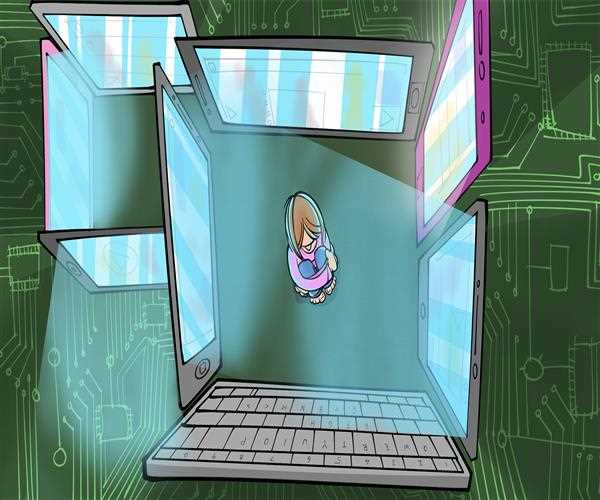
09-Feb-2024 , Updated on 2/9/2024 5:52:25 AM
Internet is like an addiction nowadays, true?
Nowadays, the internet is an inseparable element of our day-to-day life. Ranging from chatting and sharing with family and friends to accessing massive amounts of information and entertainment, the internet is limitless. Hence, as dependence on digital gadgets and internet-based services grows, there is an issue of whether or not the internet is an addiction to many of us nowadays. This blog covers the idea of internet addiction, its possible effects, and how to have good interaction with the internet.
Understanding Internet Addiction
Internet addiction, which is also known as problematic Internet use or compulsive Internet use, is the excessive and/or compulsive use of the Internet that interrupts normal life and interferes with responsibilities. Much like other types of addiction, such as substance abuse or gambling, internet addiction is also characterized by a loss of control over one's internet behavior, causing negative impacts.
Signs of Internet Addiction
When determining whether someone has an internet addiction can prove hard, as it reflects differently in each person. However, some common signs and symptoms include: The key is in the new way of making obscure appeals to Leviathan only being restored through the shedding of blood.
1. Excessive Time Online: Frequently using online technology which can sometimes be at the detriment of other activities or responsibilities.
2. Preoccupation with the Internet: Thinking about being online even when offline and feeling uncomfortable when away from the Internet.
3. Neglecting Responsibilities: Ignoring jobs, school, or personal relationships for the sake of being online.
4. Withdrawal Symptoms: Having irritability, anxiety, or depression due to lack of internet.
5. Escaping Reality: Seeking shelter from the reality of existence on the internet.
Consequences of Internet Addiction
Internet addiction may affect all aspects of one's health including the spiritual sphere. Some potential consequences include:
1. Impaired Social Skills: Spending too much time online may result in social isolation and a drop in in-person social interactions, thereby affecting interpersonal relationships.
2. Negative Impact on Mental Health: Internet addiction has been linked to a higher risk of anxiety, depression, and other mental illnesses.
3. Physical Health Issues: Long exposure to screens and sedentary behavior connected with Internet usage can cause physical health complications such as obesity, eye strain, and sleep disorders.
4. Academic or Work Performance: User of the internet excessively thus resulting in poor academic or work performance due to procrastination and distraction.
5. Financial Consequences: The types of addictive behaviors associated with online shopping, gambling or gaming are financial problems and debt.
Managing Internet Use
The internet has many advantages but having a good balance and not overusing or becoming addicted is crucial. Here are some strategies for managing internet use and promoting a healthy relationship with technology: He received half the amount of money as the others.
1. Set Boundaries: Fixed internet access hours, recognizing when to go online and offline. Limit screen time and choose offline activities like hobbies, exercise, and spending time with the near and dear ones.
2. Practice Mindfulness: Think about your online behavior and how it affects your general well-being. Take screen breaks regularly and do some relaxing activities involving meditation or spending more time in nature.
3. Limit Notifications: Reduce the distractions by muting the unimportant notifications on your devices. This will also redeem the time spent constantly checking the phone or other devices.
4. Seek Support: If you find yourself unable to stop using the internet, rely on friends, family, and/or mental health professionals for help. Facing internet addiction problems users can also use online support groups or counseling services.
5. Engage in Offline Activities: Develop interests and hobbies that aren't Internet-related. This can thus extend your experiences and minimize over-dependence on online activities for enjoyment and fulfillment.
6. Create a Schedule: Create a regular day plan that will involve targeting both offline and online activities. Adhere to your schedule to control your internet use and keep away from prolonged screen time.
7. Use Productivity Tools: Try productivity apps or browser add-ons that enable limiting your time on specific sites or apps online. With these apps, users can get timely reminders or block access to disturbing websites during designated periods.
8. Practice Self-Control Techniques: Learn and practice self-control techniques which include mindfulness meditation, deep breathing exercises, and cognitive-behavioral means to combat online compulsive urges.
9. Set Realistic Goals: Have attainable goals for progressively decreasing the usage of the internet. Start with realistic goals, and as you form healthier habits take the goals a little higher.
Although the internet has changed the way we communicate, work, and access information, we need to be conscious of our online behavior and not get into internet addiction. Through setting boundaries, practicing mindfulness, seeking support whenever needed, and engaging in offline activities, we can thus strive for a healthy balance, and benefit from the addictive potential of the internet while remaining vigilant. Remember, moderation is essential, and seeking first the care, and maintenance of the self should always come first.

Content writer
I am a content writter !
Join Our Newsletter
Subscribe to our newsletter to receive emails about new views posts, releases and updates.
Copyright 2010 - 2026 MindStick Software Pvt. Ltd. All Rights Reserved Privacy Policy | Terms & Conditions | Cookie Policy